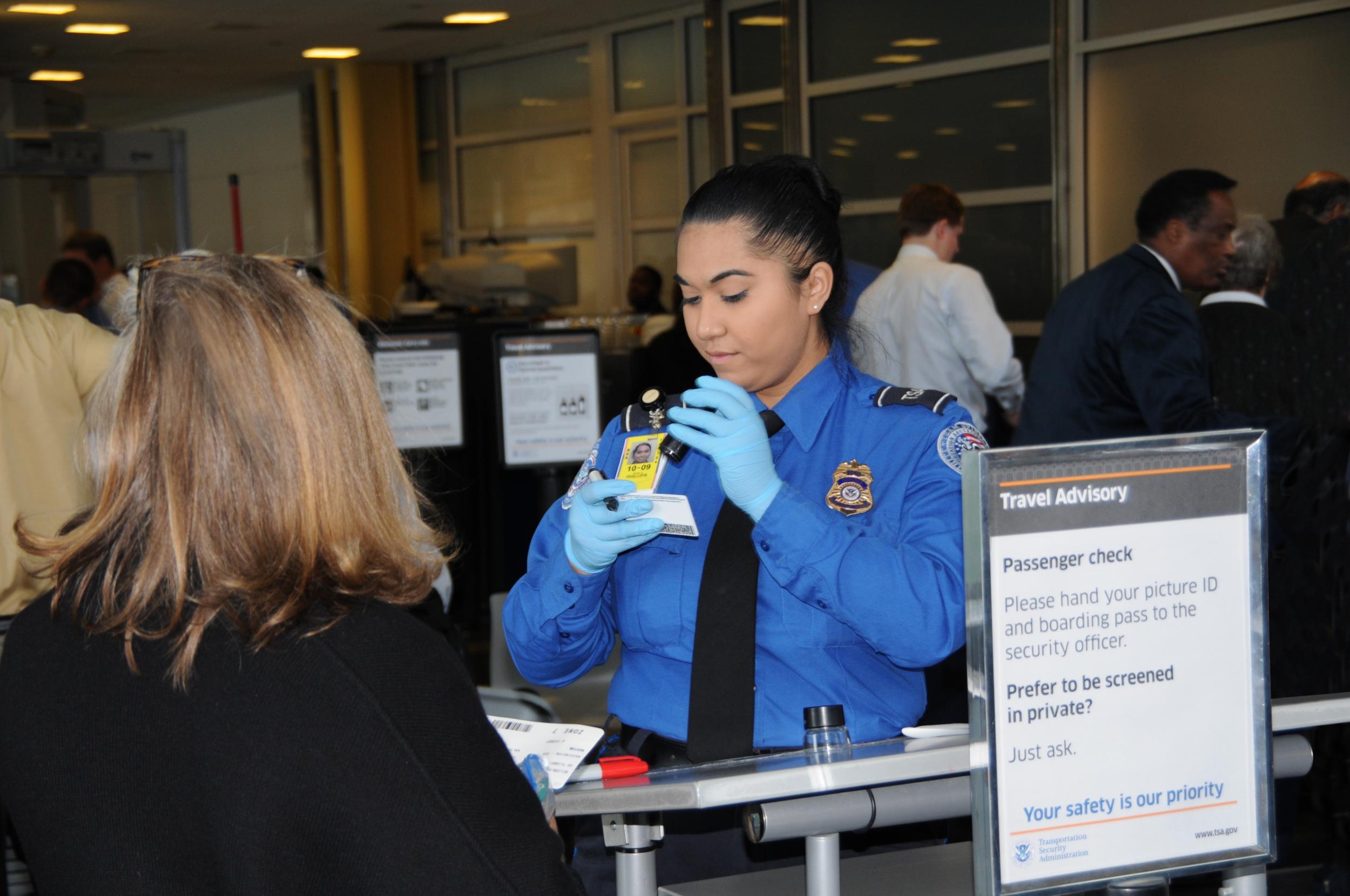US airport security: How Trump's latest travel and laptop ban has changed travelling to America
Our travel correspondent explains what the new rules will mean for airline passengers heading for the US

Passengers flying to America on a wide range of non-US airlines face additional checks in what Washington calls a “shared commitment to raising the bar on global aviation security”. The measures will include a personal interview for every traveller before they are allowed on the plane. This is what passengers need to know about what is changing.
Why are the US authorities demanding changes?
The US Department of Homeland Security (DHS) is convinced that various terrorist groups are targeting aircraft flying to America. The organisation says: “It is imperative to raise the baseline of global aviation security.”
On a typical day, around one-third of a million passengers fly to America on 180 non-US airlines, from 280 airports around the world.
The new measures flow from the Trump Administration’s sudden decision in March to impose a ban on laptops and other electronic devices bigger than a mobile phone on flights from 10 Middle Eastern and North African airports to the US. The UK immediately followed with a similar ban.
By the summer, it became clear that Washington wanted to extend the electronics ban to all US-bound flights. The European Union was in the forefront of efforts to persuade the Americans that such a move could itself present a safety issue, with large numbers of potentially unstable lithium batteries being carried in the hold.
The US agreed not to impose a ban if a range of additional checks are made at “Last Point of Departure Airports”.
What has changed?
Some of the measures will not be immediately evident. They include enhanced surveillance of aircraft on the ground, and of the departure gate area; the US is known to be concerned about the possibility of an “insider threat” from an airport employee handing an explosive device to a passenger who has cleared security. Sniffer dogs are being deployed in greater numbers. In addition, the DHS recommends that “passengers flying to the United States prepare for a more extensive screening process”. Starting on Thursday 26 October, airlines are introducing new security measures, which could include steps such as “explosive trace detection” checks and will certainly involve a personal interview, of the kind that already takes place for travellers on US carriers.
For passengers with hold baggage, this will take place before check-in; for travellers with hand-luggage only, it will happen at the departure gate. It is, of course, additional to the existing airport security screening that all passengers pass through.
What will I be asked?
That depends on how interesting you are to the security staff conducting the interview. They will have access to data such as when you bought the ticket, and can examine your passport to identify previous patterns.
A family flying to Florida on a holiday booked months earlier may be barely aware of any kind of interview having taken place. Security staff will be much more interested in single travellers who booked very late and whose passport shows evidence of travel to countries in North Africa and the Middle East.
Will I need to fill in any more forms?
At present a typical traveller to the US has to enrol online for Esta, the Electronic System for Travel Authorization, and an alternative to an American visa. In addition they must provide Advance Passenger Information (API) and Secure Flight Passenger Data (SFPD), which will be requested by the airline.
Some carriers are believed to be requiring passengers to complete a short paper questionnaire. But security staff will have access to the API and SFPD, and will be conducting the interview based on that.
Does this amount to “profiling”?
The concept of tighter security for certain individuals is highly controversial, because it is thought that young Muslim men will be singled out for more intrusive investigation. What is being introduced is “behavioural analysis”, where a passenger’s demeanour and travel background are of interest, rather than their gender, religion and race.
Do I need to get to the airport earlier – and could my flight be delayed?
Given the extra steps that will be involved, from check-in to boarding the aircraft, it is probably wise to allow a little extra time. Planes will not be allowed to depart until security staff are certain there is no threat, which could delay some flights. The European airport most affected is London Heathrow, which has far more US-bound departures than any other.
Will it put people off travelling to the US?
Some may be deterred, but extra security including some personal interviews have been a feature of travel to America since the Lockerbie bombing in 1988. Since then the number of travellers to the US has steadily increased.
Join our commenting forum
Join thought-provoking conversations, follow other Independent readers and see their replies
Comments
Bookmark popover
Removed from bookmarks